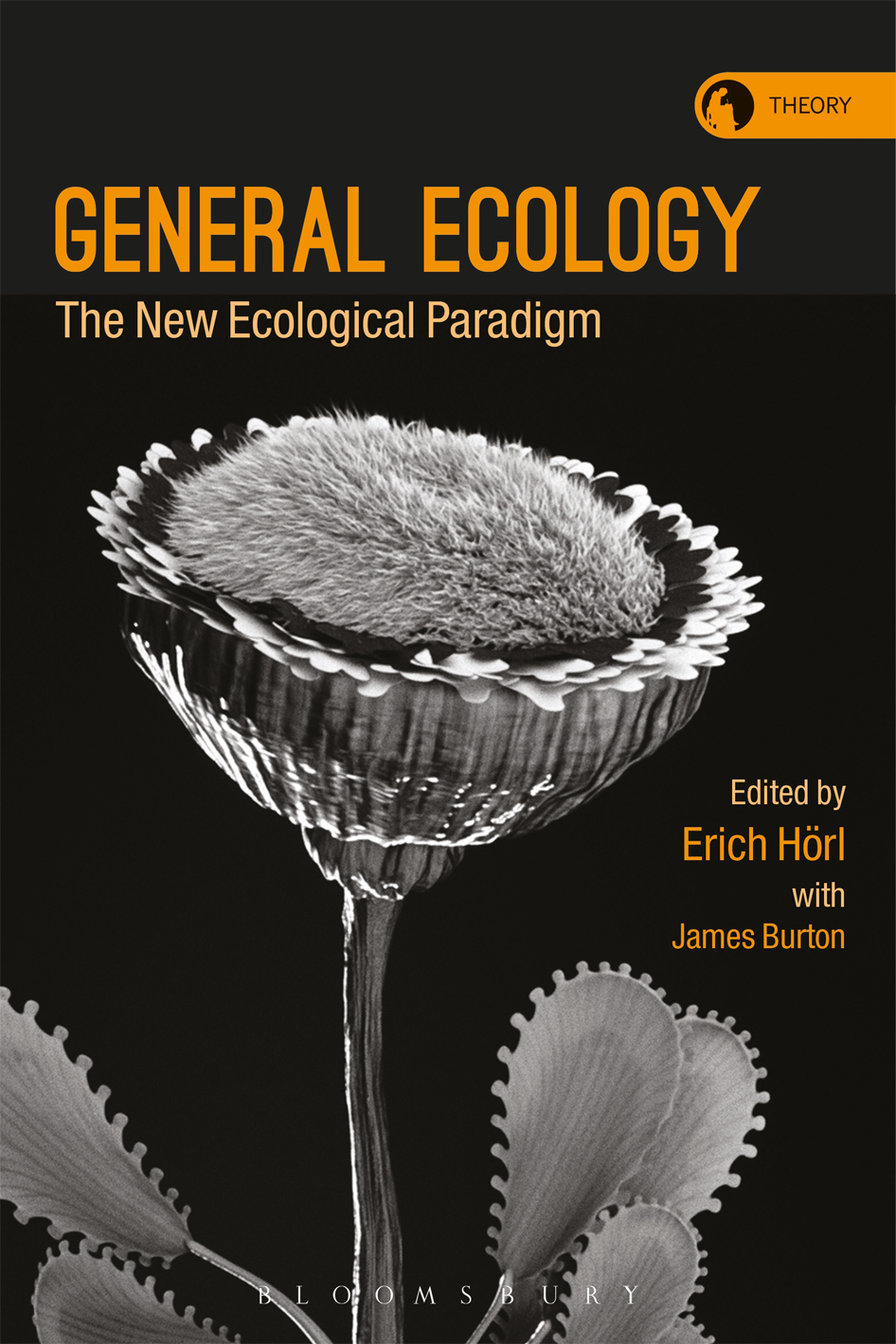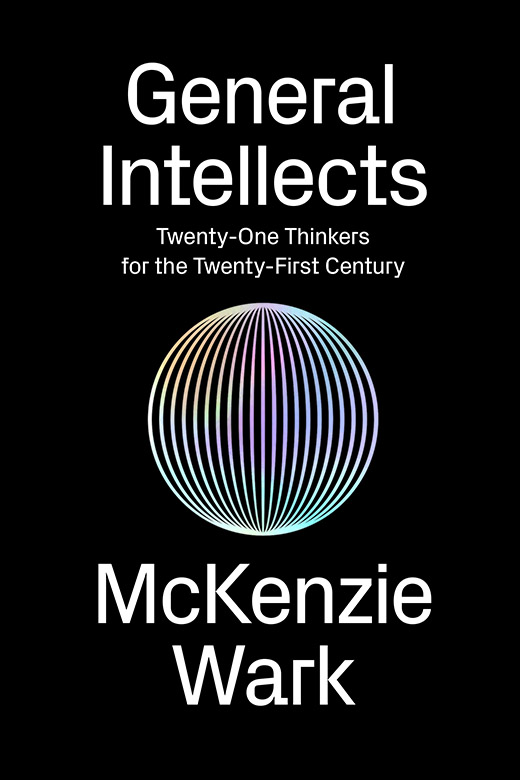Erich Hörl, James Burton (eds.): General Ecology: The New Ecological Paradigm (2017)
Filed under book | Tags: · affect, anthropocene, biopolitics, capitalism, cybernetics, ecology, general ecology, life, nature, philosophy, systems theory, theory

“Ecology has become one of the most urgent and lively fields in both the humanities and sciences. In a dramatic widening of scope beyond its original concern with the coexistence of living organisms within a natural environment, it is now recognized that there are ecologies of mind, information, sensation, perception, power, participation, media, behavior, belonging, values, the social, the political… a thousand ecologies. This proliferation is not simply a metaphorical extension of the figurative potential of natural ecology: rather, it reflects the thoroughgoing imbrication of natural and technological elements in the constitution of the contemporary environments we inhabit, the rise of a cybernetic natural state, with its corresponding mode of power. Hence this ecology of ecologies initiates and demands that we go beyond the specificity of any particular ecology: a general thinking of ecology which may also constitute an ecological transformation of thought itself is required.
In this ambitious and radical new volume of writings, some of the most exciting contemporary thinkers in the field take on the task of revealing and theorizing the extent of the ecologization of existence as the effect of our contemporary sociotechnological condition: together, they bring out the complexity and urgency of the challenge of ecological thought-one we cannot avoid if we want to ask and indeed have a chance of affecting what forms of life, agency, modes of existence, human or otherwise, will participate-and how-in this planet’s future.”
With texts by Erich Hörl, Luciana Parisi, Frédéric Neyrat, Bernard Stiegler, Didier Debaise, Jussi Parikka, Bruce Clarke, Cary Wolfe, David Wills, James Burton, Elena Esposito, Timothy Morton, Matthew Fuller and Olga Goriunova, and Brian Massumi.
Publisher Bloomsbury Academic, London/New York, 2017
ISBN 9781350014695, 1350014699
xv+384 pages
McKenzie Wark: General Intellects: Twenty-One Thinkers for the Twenty First Century (2017)
Filed under book | Tags: · anthropocene, capitalism, communism, culture, labour, marxism, neoliberalism, philosophy, politics, technology, theory, work

“A guide to the thinkers and ideas that will shape the future
What happened to the public intellectuals that used to challenge and inform us? Who is the Sartre or De Beauvoir of the internet age? General Intellects argues we no longer have such singular figures, but there are, instead, general intellects whose writing could, if read collectively, explain our times. Covering topics such as culture, politics, work, technology, and the Anthropocene, each chapter is a concise account of an individual thinker, providing useful context and connections to the work of the others. McKenzie Wark’s distinctive readings are appreciations, but are nonetheless critical of how neoliberal universities militate against cooperative intellectual work that endeavors to understand and also change the world.”
The thinkers included are Amy Wendling, Kojin Karatani, Paolo Virno, Yann Moulier Boutang, Maurizio Lazzarato, Franco “Bifo” Berardi, Angela McRobbie, Paul Gilroy, Slavoj Žižek, Jodi Dean, Chantal Mouffe, Wendy Brown, Judith Butler, Hiroki Azuma, Paul B. Préciado, Wendy Chun, Alexander Galloway, Timothy Morton, Quentin Meillassoux, Isabelle Stengers, and Donna Haraway.
Publisher Verso, London, 2017
Public Seminar series
ISBN 9781786631909, 1786631903
viii+325 pages
HTML
See also extra chapters on Eduardo Viveiros de Castro, Nick Land, Sianne Ngai, Wang Hui, Amitav Ghosh, Yves Citton and Bruno Latour.
Christoph Cox, Jenny Jaskey, Suhail Malik (eds.): Realism Materialism Art (2015)
Filed under book | Tags: · aesthetics, art theory, materialism, matter, object, object-oriented ontology, philosophy, realism, representation, speculative realism, technology, theory

“Realism Materialism Art (RMA) introduces a diverse selection of new realist and materialist philosophies and examines their ramifications on the arts. Encompassing neo-materialist theories, object-oriented ontologies, and neo-rationalist philosophies, RMA serves as a primer on ‘speculative realism,’ considering its conceptual innovations as spurs to artistic thinking and practice and beyond. Despite their differences, these philosophical positions propose that thought can and does think outside itself, and that reality can be known without its being shaped by and for human comprehension. Today’s realisms and materialisms explicitly challenge many of the dominant assumptions of cultural practice and theoretical inquiry, opening up new domains of research and artistic inquiry.”
Contributions by Armen Avanessian, Elie Ayache, Amanda Beech, Ray Brassier, Mikko Canini, Diana Coole, Christoph Cox, Manuel DeLanda, Diedrich Diederichsen, Tristan Garcia, Iain Hamilton Grant, Elizabeth Grosz, Boris Groys, Graham Harman, Terry Horgan, Jenny Jaskey, Katerina Kolozova, James Ladyman, François Laruelle, Nathan Lee, Suhail Malik, Quentin Meillassoux, Reza Negarestani, John Ó Maoilearca, Trevor Paglen, Luciana Parisi, Matthew Poole, Matjaž Potrč, João Ribas, Matthew Ritchie, Alicia Ritson, Susan Schuppli, Steven Shaviro, Nick Srnicek, Achim Szepanski, Eugene Thacker, McKenzie Wark, Andy Weir.
Publisher Center for Curatorial Studies, Bard College, NY, and Sternberg Press, Berlin, 2015
ISBN 9783956791260, 3956791266
403 pages
Reviews: Ilse van Rijn (Open, 2015), Hatty Nestor (Review31, n.d.).
PDF (14 MB)
Comment (0)
